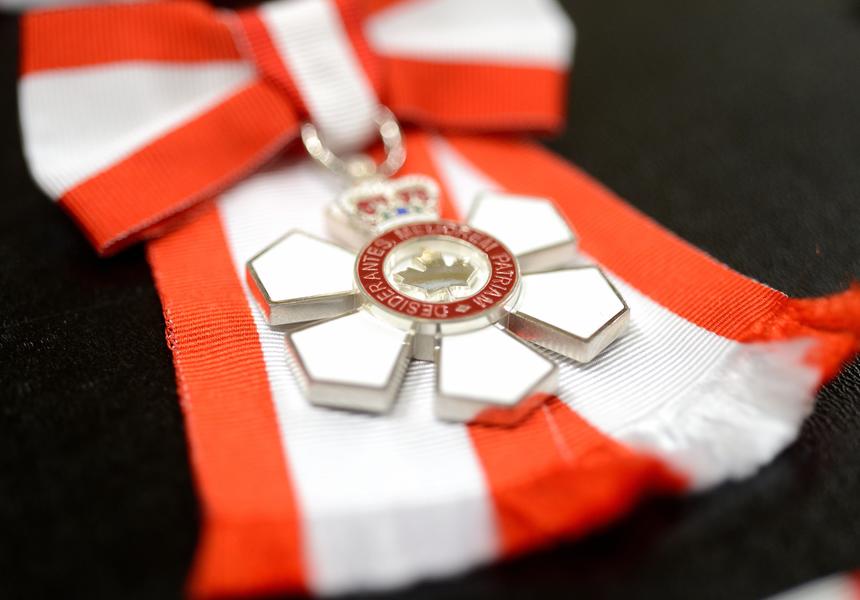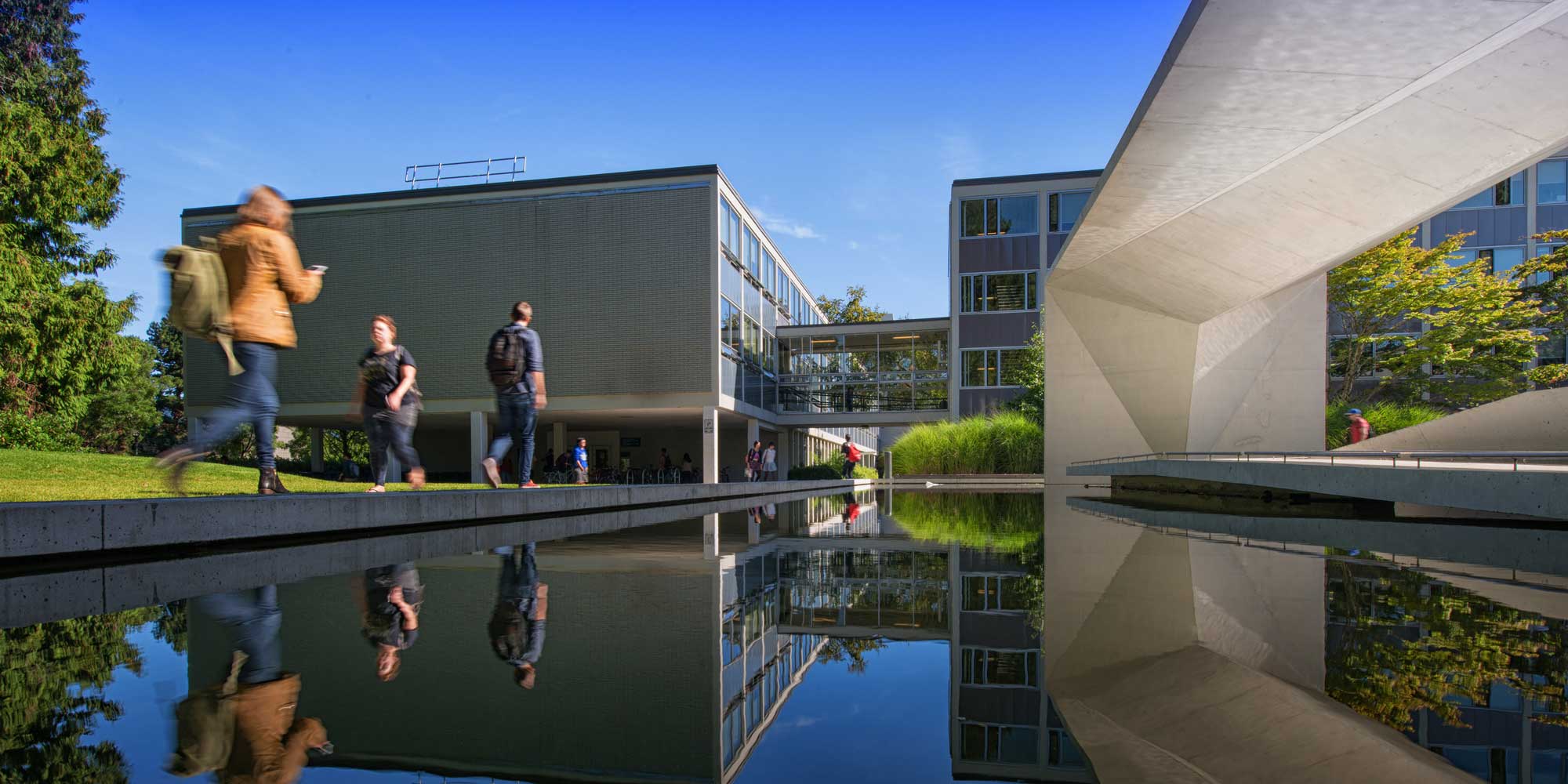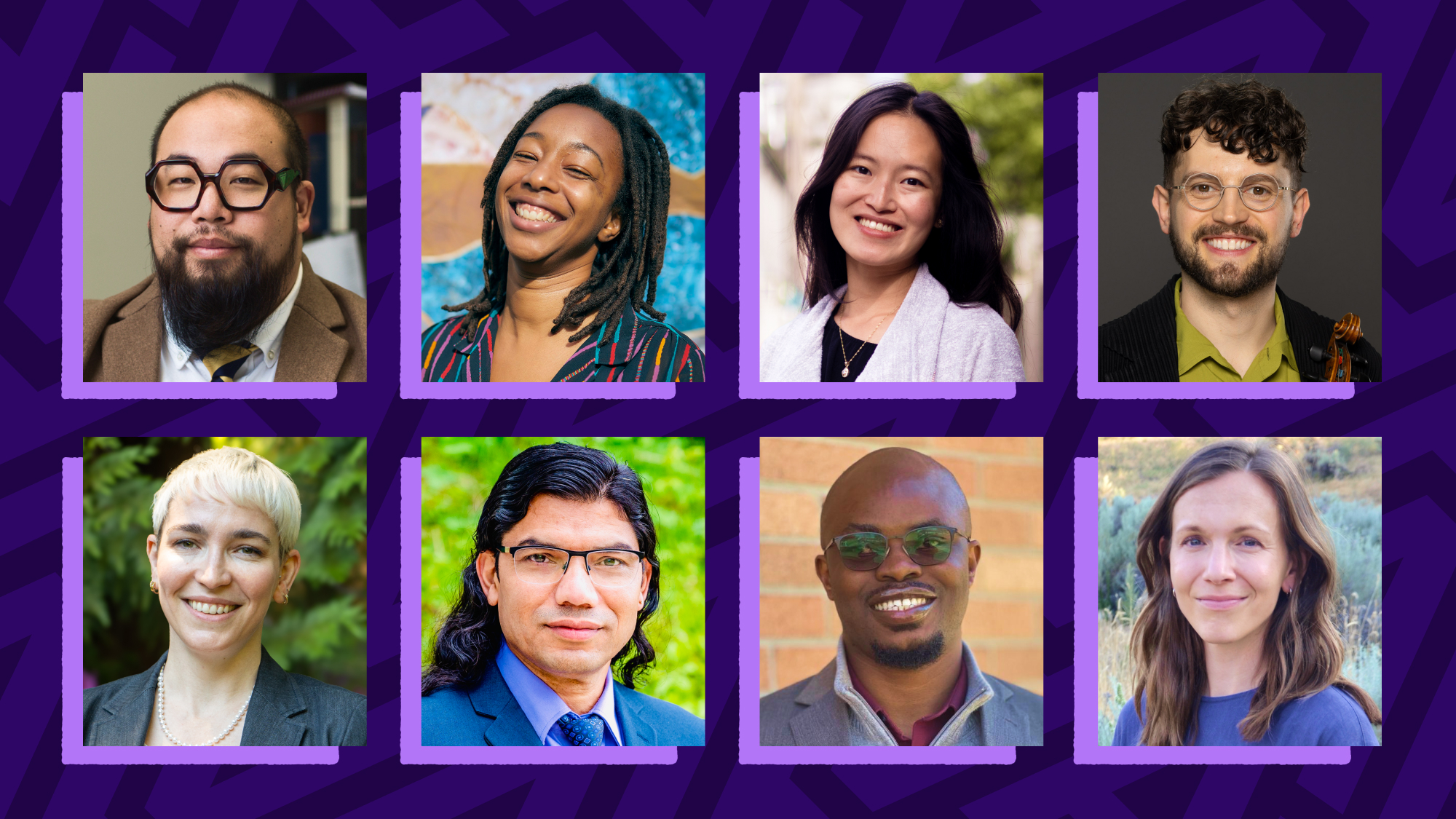

The Faculty of Arts is welcoming several new faculty members this year. Meet some of the new profs, get to know what they’re working on, and why they’re excited to be at UBC.
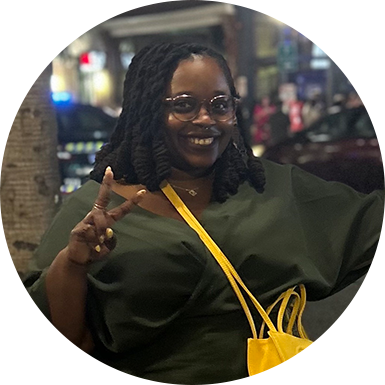

Alycia Hall
Assistant Professor, Department of History
What is your area of research or teaching?
I am a historian of the African Diaspora with a focus on the eighteenth- and nineteenth-century Caribbean. In particular, I examine Jamaican Maroon communities in the plantation matrix from the 1790s through the 1890s. I examine the formation of five Jamaican Maroon communities and their interactions with other peoples and groups in Jamaica from the Second Maroon War of the 1790s to the 1890s. Parsing through intricate relationalities, my work traces how Maroon communities navigated a changing social, political, and economic world as Jamaica transitioned from slavery to free labour.
Why are you excited about being at UBC?
I am eager to join a dynamic Faculty and be a part of a community where opportunities for mentorship and collaboration are abundant. I cannot wait to teach and learn from the students who take my classes on the history of the African Diaspora. This fall, I will lecture and discuss with students the post-emancipation formation of the Caribbean as formerly enslaved people attempted to enact their own visions of freedom.
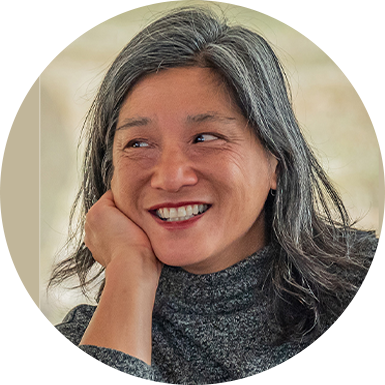

Germaine Koh
Assistant Professor in Visual Art, Department of Art History, Visual Art & Theory
What is your area of research or teaching?
In general, my research is concerned with environment and place-based investigation, communication systems and technologies, DIY and community practices, and processes of making. My current research-creation projects are looking at slow fashion and sustainable textiles, alternative forms of housing, play as a form of creative practice, and animating household objects in relation to environmental inputs. In my first year at UBC, I will be teaching courses on sculpture in public space, creative electronics for artists, and leading a directed studio and a fourth-year professional practice seminar. I am also on the AHVA department’s graduate committee.
Why are you excited about being at UBC?
Coming from 25 years of operating as an independent interdisciplinary artist whose work intersects with a wide variety of systems and sectors, I am very excited at the prospect of being part of a team and connecting with specialists from different fields across this respected university.
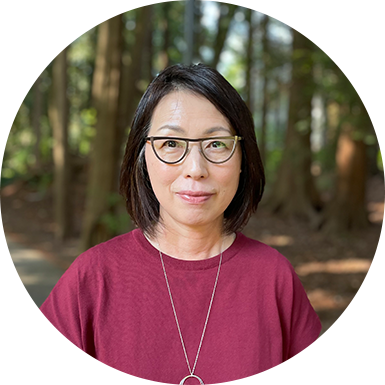

Hiromi Aoki
Assistant Professor of Teaching, Department of Asian Studies
What is your area of research or teaching?
I have experience teaching Japanese language courses at all levels, as well as a course in language pedagogy. My research interests focus on Japanese language pedagogy and linguistics. Previously, I collaborated with faculty from several Canadian universities to develop an animated conversational video series for elementary Japanese learners called Nihongo Kikusasaizu. Currently, my research explores the integration of AI in Japanese language learning.
Why are you excited about being at UBC?
The Japanese program at UBC is one of the largest in Canada, offering an unparalleled variety of courses. I am excited about the unique opportunities that come with being part of such a comprehensive program and the collaborative environment where experienced educators continuously challenge and inspire one another. I am thrilled to join this outstanding team and look forward to contributing to the program while continuing to grow as an educator. As someone from Japan, I am also looking forward to experiencing the spring here, when the campus is covered in cherry blossoms.
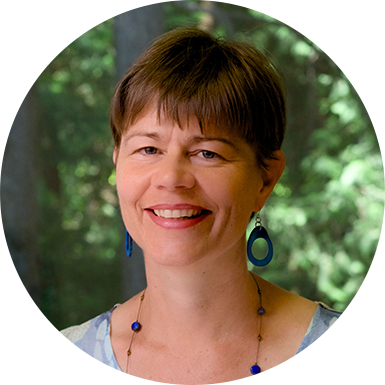

Irene Bloemraad
Professor, Department of Political Science and Department of Sociology
What is your area of research or teaching?
I research the political and civic incorporation of immigrants into Western liberal democracies and the consequences of immigration for politics and national imaginaries. A core question I ask is how migrants gain a voice in the political systems where they live. One stream of this research investigates the acquisition of formal citizenship, and the experiential and conceptual contours of citizenship as membership. Other research examines the opportunities and limits of community-based organizations for immigrant political voice and integration; the content and transformation of national identities, including multiculturalism; immigrants’ engagement in electoral and protest politics; and how non-immigrants’ attitudes about immigrants shift depending on how we frame an issue.
Why are you excited about being at UBC?
In addition to teaching and doing research across the departments of Political Science and Sociology, I will also serve as co-director of the Centre for Migration Studies (CMS), an interdisciplinary research and training hub in the Faculty of Arts. This year, we will launch the new graduate Certificate in Migration Studies. I’m thrilled to be part of this new initiative, which is pretty unique among universities in North America.
I am also excited to help make the Centre one of the go-to places for information on migration in North America. The policy challenges around migration are intense, and I want CMS to contribute to those debates. The Centre can offer evidence-based research to clarify what is going on, as well as illuminate the ethical trade-offs of different policy choices.


Isaac Soon
Assistant Professor of Early Christianity, Department of Ancient Mediterranean and Near Eastern Studies
What is your area of research or teaching?
The lion’s share of my research centres on embodiment in the ancient Mediterranean world with a focus on early Christian, Jewish, and Graeco-Roman material. My work thus far has focused on intersections between disability, gender, and enslavement within wider cultures of healthcare, medicine, and ideal embodiment. My first monograph analyzes circumcision, demonization, and dwarfism in the ancient Mediterranean. I have also written a trilogy of articles on short-statured figures in the New Testament, each of which interrogates scholarly preconceptions about the bodies and abilities of earlier Christian figures. The projects that I am currently working on extend the research that I have initiated in this area, turning in particular to themes of enslavement, death, and metamorphosis.
Why are you excited about being at UBC?
I am most excited to collaborate with and learn from my new colleagues in the Department of Ancient Mediterranean and Near Eastern Studies. Our department is very interdisciplinary (spanning ancient history, classics, Greek and Latin languages, archaeology, Jewish studies, and religious studies). I think proximity to experts in fields adjacent but very relevant to my own work will only sharpen my research. Additionally, this interdisciplinarity enriches my teaching as students encounter ancient sources and critical scholarship embedded in wider contexts of knowledge and not siloed off in our own narrow field.


Jac Nobiss
Assistant Professor, School of Social Work
What is your area of research or teaching?
My research delves into Indigenous identity regarding intersectional dynamics. Many of these intersections include challenges that affect the health and well-being of Indigenous Peoples. Applications of pan-identity often conflate history, experiences, and circumstances that are piecemeal understandings of only one nation but are assumed to be the same for all. My work has focused on bringing cultural stories, teachings, and traditional ways of being and knowing to light and bridging these pieces with contemporary use and understanding of nation-specific identities. My role is to teach Indigenous initiatives that traverse the lives of Indigenous people and shed light on not only the colonial impacts but also the strength and resiliency demonstrated by Indigenous Peoples through time.
Why are you excited about being at UBC?
As a Métis scholar, I am excited to be part of an innovative culture at UBC. In 2019, I attended the annual Canadian Association for Social Work Education (CASWE) conference hosted by UBC. At that time, I set my vision to join the many amazing scholars at UBC who had similar areas of expertise. The strength of the Indigenous nations who have held these lands for centuries is the biggest highlight in my current journey as I am excited to learn from them. My goal is to ensure my academic pathway complements the School of Social Work in the most positive light while working with the Vancouver host nations of the Musqueam, Squamish, and Tsleil-Waututh peoples to fulfill the actions highlighted in the UBC Indigenous Strategic Plan (2020).
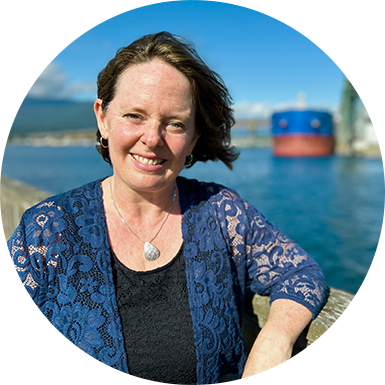

Jen Moss
Lecturer, School of Creative Writing
What is your area of research or teaching?
I teach a variety of courses, including writing for podcasting and new media, and various forms of interactive storytelling. I am most interested in the areas where creative writing encounters new technology. What happens when new forms emerge that impose certain restrictions of style, length, and voice on writers, while at the same time unveiling new opportunities for them to stretch their creative claws? What impact do powerful tools like GenAI have on emerging writers? On writing itself? I have spent many years collaborating—first in theatre, then in radio, podcasts, and various forms of new media—and I am always interested in what happens when mixed groups of people from a variety of disciplines and backgrounds get together to “problem solve” in a creative context.
Why are you excited about being at UBC?
I am excited to collaborate with colleagues who share my interest in interdisciplinary creative exploration. I want to learn all I can about how to help creative writing students make the most of emerging technologies — while not losing sight of the need to develop their inner voice. I want to help emerging writers shine in areas like world-building, narrative continuity, user experience design logic, character development, action and pacing, and more. To me, creativity is all about the process, and the results are derived from that process. I am excited to confer with colleagues at the UBC Emerging Media Lab and other communities of practice, to help develop an interdisciplinary process for addressing new technologies; one that maximizes the skills that writers bring.


Jessica Kay Flake
Assistant Professor, Department of Psychology
What is your area of research or teaching?
I am in the quantitative methods area of the Department of Psychology. My research focuses on psychological measurement and psychometrics, with an emphasis on the development of transparent and open practices. I teach introductory and advanced courses in statistics, instrument development, and modeling.
Why are you excited about being at UBC?
The Department of Psychology at UBC is unique in Canada—many scholars focus on quantitative and open science methodology—which is a perfect fit for me. It has also been a dream of mine to live in the mountains, so being able to see them from campus is a great perk!
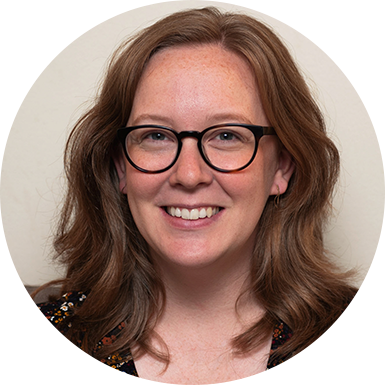

Jill Dosso
Lecturer, Department of Psychology
What is your area of research or teaching?
My teaching is focused on the biological and cognitive aspects of psychology—how do our brains create our experiences? My research has particularly looked at people’s experiences with smart, social technologies. The manufacturers of these devices tend to make broad claims about their capacity to support users’ mental health—robots that befriend, educate, and adapt, sensors that reassure, etc.—but it is not clear if these claims are aligned with the real needs and priorities of users, particularly those from vulnerable clinical populations.
Why are you excited about being at UBC?
Psychology, particularly at UBC, is a great home as an educator because there is so much scholarly and technical interest in the science of learning and assessment. I was a part of the department as a PhD student and completed a postdoc elsewhere, so I am excited to return to this warm, collaborative, and diverse community.
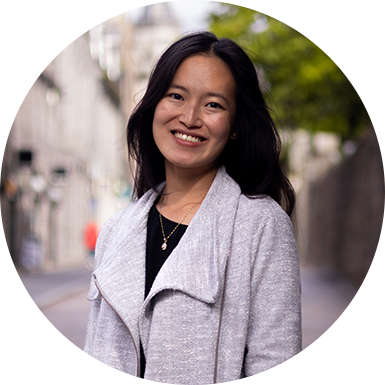

Joan Danielle Ongchoco
Assistant Professor, Department of Psychology
What is your area of research or teaching?
At the UBC Perception & Cognition Lab, we are interested in the ways perception—what we see or hear—can interact with broader mental life. In particular, the raw material of perception is intrinsically continuous— an undifferentiated wash of light and sound—but what we experience are discrete individuals: objects in space, and events in time. Among some of our work, we have shown how objects can be so foundational that we hallucinate them, even when there are no objects around, and that the boundaries between events can have surprisingly downstream consequences for reasoning and decision-making (as in even just listening to music, or walking through doorways in our everyday lives).
Why are you excited about being at UBC?
I have felt at home in the conversations and encounters I had with so many people here in the UBC community. I am incredibly excited to work with all the students and faculty—to ask questions at the intersection of cognitive science, philosophy, the arts, and beyond.
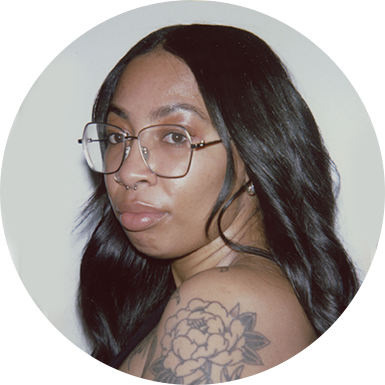

Karice Mitchell
Black Scholar Assistant Professor in Visual Art, Department of Art History, Visual Art & Theory
What is your area of research or teaching?
The majority of my research and artistic practice positions vintage Black erotic publications as significant cultural markers of Black femme representation to negotiate the politics of race, gender, and sexuality. Through critical interventions of found imagery, my work seeks to consider the cultural, temporal, political, and economic significance of Black erotica to re-imagine modes of existence for the Black femme body that mobilizes agency. I am especially interested in theoretical discussions around image-making and foregrounding photography as a powerful site to enact decolonial practices.
Why are you excited about being at UBC?
I have been a lecturer at UBC for three years and have grown incredibly fond of the vibrant academic and artistic community. In transitioning into my new position, I am especially looking forward to facilitating dialogues across disciplines and engaging in site-specific research to expand considerations around Black diasporic histories and placemaking.
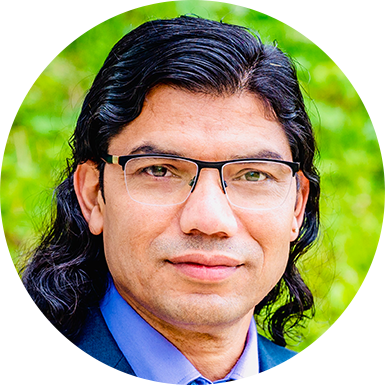

Karun Karki
Associate Professor, School of Social Work
What is your area of research or teaching?
My scholarly inquiries are grounded in critical theories, including anti-racism, anti-colonialism, intersectionality, and anti-oppressive social justice praxis. I am more interested in understanding how biopolitical and necropolitical spaces within the borders of the nation-states govern people and how the state’s sovereign power becomes a persistent recurrence of the process of exclusion and disposition of people in light of today’s urgent issues, including the migration crisis, humanitarian crisis, the rise of populism, homonationalist practices, and state-sanctioned targeting of gender, sexual, racial, and ethnic “others.” My teaching interests include social work philosophy, anti-oppressive social work practice, social/public welfare policy, and research methods.
Why are you excited about being at UBC?
The University of British Columbia is home to world-class, renowned scholars and students representing more than 150 countries worldwide. Through its groundbreaking research excellence, student-centered learning environment, and interdisciplinary programs, you can transform your personal initiatives into innovation, and new ideas into impacts. I am thrilled to be a part of this community, where I base my research, service, and teaching grounded in and informed by decolonization, indigenization, glocalization, and anti-oppressive social justice praxis. I am pleased to join wonderful colleagues in the School of Social Work at UBC. Finally, I express my gratitude for the honour of living and working on the traditional unceded territory of the xʷməθkʷəy̓əm (Musqueam) People.
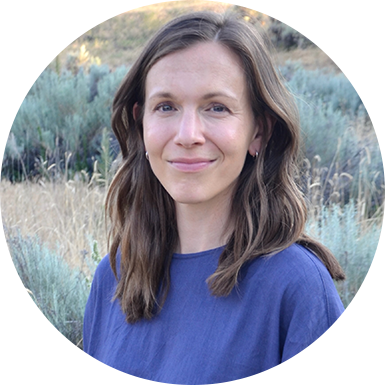

Kathryn McConnell
Assistant Professor, Department of Sociology
What is your area of research or teaching?
I research the social dynamics of climate change, with a focus on the intersection of climate hazards, the built environment, and population mobility. Much of my recent work is focused on migration and displacement following destructive wildfires and includes qualitative research with wildfire survivors and quantitative research modeling large-scale migration patterns. This research is motivated by larger questions about how to support people who live in places that are increasingly hazardous. I will be teaching courses on the sociology of natural resources and the environment, where we will be exploring the ways that environments and social processes shape each other.
Why are you excited about being at UBC?
UBC really stands out as having trans-disciplinary strength in climate change research, and the Sociology department in particular has an amazing cluster of environmental sociologists. I’m excited to join a university with so much potential for collaboration!
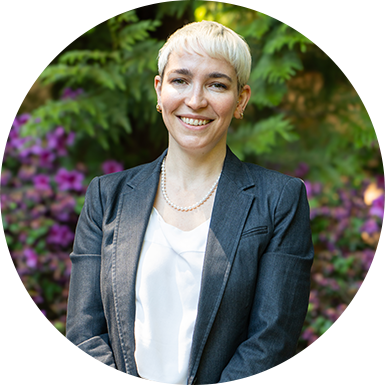

Kirby Manià
Assistant Professor of Teaching, Coordinated Arts Program and School of Journalism, Writing, and Media
What is your area of research or teaching?
As a researcher, editor, and poet, my interests lie in urban ecology and postcolonial ecocriticism. I have spent a large portion of my disciplinary research focusing on the work of South African writer, Ivan Vladislavić, and have critically engaged with literary representations of my hometown, Johannesburg, in much of my published scholarship. As for my teaching, I am passionate about topics such as environmental, climate, and citational justice and try to amplify voices from the Global South through the texts I select to discuss in class. I am looking forward to continuing to teach academic writing as well as literary studies to UBC students. Community-engaged learning and meaningful knowledge exchange are also key features of my teaching philosophy.
Why are you excited about being at UBC?
I will be splitting my time between two units: the School of Journalism, Writing, and Media (JWAM) and the Coordinated Arts Program (CAP). Both units are committed to innovative teaching, experiential learning, dynamic curriculum development, and anti-racist pedagogy. I am very excited to support these two units as they continue to offer inclusive and sociopolitically important courses to students across the university. I am thrilled to be able to continue my professional and scholarly journey at UBC with its beautiful campus, excellent support services, and its globally respected scholarly community.
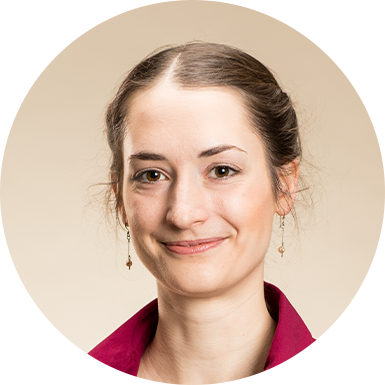

Marysa Laguë
Assistant Professor, Department of Geography
What is your area of research or teaching?
I study the role of land in the coupled climate system—anything from how changes in vegetation impact surface temperatures and cloud formation, to how changes in the distribution of continents alter planetary climate. I use and develop numerical models of the Earth system. My research is fundamentally interdisciplinary, combining atmospheric sciences, planetary sciences, large-scale plant ecology, mathematical, numerical, and idealized modelling, and computer programming.
Why are you excited about being at UBC?
I was born and raised in BC, and completed my undergraduate degree in UBC’s mathematics department. I’m thrilled to be back in my home province and am particularly excited about connecting with the broad range of researchers studying all things plants-and-climate related across campus and beyond.
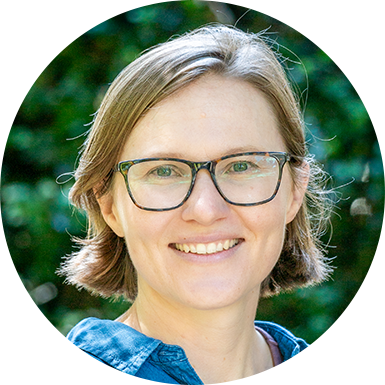

McKenzie Kuhn
Assistant Professor, Department of Geography
What is your area of research or teaching?
I am broadly interested in how climate change is impacting carbon and nutrient cycling in northern boreal and Arctic ecosystems. Northern ecosystems are warming at four times the rate of the rest of the world, leading to rapid environmental change with local and global impacts. I look to understand how warming, permafrost thaw, and other climate change impacts like wildfire, will alter greenhouse gas emissions and capture in northern terrestrial and freshwater ecosystems. To address these research goals my group uses a variety of field and laboratory-based approaches, data synthesis, statistical model development, and remote sensing tools. My goal as a teacher is to incorporate my research style, which focuses on experimental and hands-on learning.
Why are you excited about being at UBC?
I am excited to engage with and work alongside UBC students and to collaborate with and learn from the many wonderful faculty and scholars from across disciplines who all make UBC so special. I also look forward to learning from and co-developing new research goals with the First Nations and Métis Peoples of the Lower Mainland and northern British Columbia. I am particularly excited to teach a course on the Arctic (GEOG 497) in Term 1. This course examines the connections between climate change, ecosystems, and the human dimensions of the Arctic, with a focus on the Canadian North.
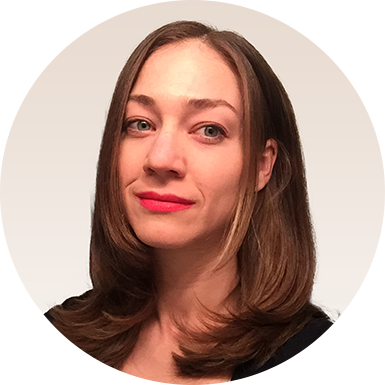

Rachel Philbrick
Assistant Professor of Latin Literature, Department of Ancient Mediterranean and Near Eastern Studies
What is your area of research or teaching?
I study and teach Latin literature of the Roman Republic and empire, and my research focuses on classical Latin poetry, especially epic and elegy, as well as its Ancient Greek models. Genre, and the way poets respond to the conventions and expectations of particular genres, is a major theme in my work. I am currently writing a book on the Roman poet Ovid (43 BCE – 17/18 CE) and the poetry he published while in exile, which raise interesting issues of credibility and authority in literary texts, why we believe an author (or not), and the role genre plays in this.
Why are you excited about being at UBC?
I am excited to be joining exceptional colleagues in the multidisciplinary department of AMNE, to learn from the wide range of expertise across UBC and beyond, and to work with the fantastic undergraduate and graduate students here who are interested in the ancient world.


Ryan Davis
Assistant Professor, Viola, School of Music
What is your area of research or teaching?
I am a violist and composer, writing and performing music under the moniker “Radia.” My music connects my classical training with the inspiration of folk, electronic, and hip-hop, and I’m passionate about carving a unique path as an artist. I hope to engage audiences while creating something new, all the while promoting the viola in varied contexts. I also cherish the classical repertoire and enjoy chamber music collaborations. It is important to me to perform for all kinds of people, as I learn the most in performances that push me to be creative, present, and vulnerable.
As a teacher, I wish to galvanize my students by exposing them to a lush history of music, yet also encourage them to explore why their art matters in contemporary life. Every student has something special to offer!
Why are you excited about being at UBC?
I can’t wait to shape my own viola studio at UBC, and am grateful to be working with such talented and diverse students. It’s no secret that pursuing music can be a challenge, so I’m excited to collaborate with our tremendous faculty as we ensure that our students are inspired to dream big and flourish. I am particularly interested in showing our students the many ways that their art can have a positive impact on the world. It can be easy to lose sight of music’s healing power while we’re hyper-focused on improving our technique, honing our skills, and developing our voice. It’s gratifying to remind students that their hard work will create all kinds of future possibilities. I can already tell that Vancouver’s wild beauty will have a lasting effect on my own music-making!
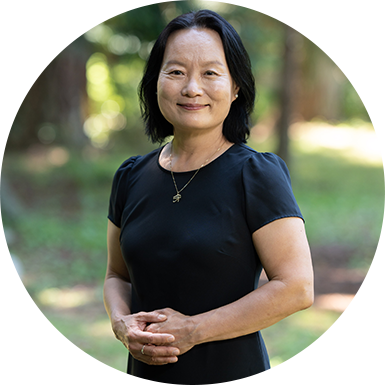

Soo Yeon Kim
Associate Professor and Korea Foundation Chair, School of Public Policy and Global Affairs
Editor, Pacific Affairs
What is your area of research or teaching?
I am a scholar of international political economy, specializing in the politics of trade. My research focuses on the political economy of trade agreements, economic integration in the Association of Southeast Asian Nations (ASEAN) region, and the role of rising powers in global economic governance. My current projects explore regional economic integration in the ASEAN region, the Asian Infrastructure Investment Bank’s role in development finance, and the connections between trade agreements and international treaties in intellectual property governance. At the School of Public Policy and Global Affairs , I also serve as the new editor of Pacific Affairs and hold the Korea Foundation Chair. During the 2024-2025 academic year, I will teach courses on Asian diplomacy and international relations
Why are you excited about being at UBC?
I am excited to join the School of Public Policy and Global Affairs and its interdisciplinary group of scholars researching and teaching about policy-relevant issues of our time. I am also excited to join as Editor of Pacific Affairs, which will soon celebrate its 100th anniversary, and I am honoured to hold the position of Korea Foundation Chair.


Terri Givens
Professor, Department of Political Science
What is your area of research or teaching?
I work on comparative politics with a focus on Europe, the US, Immigration, Race, and Gender issues in politics.
Why are you excited about being at UBC?
I am excited to work with my colleagues in the Center for Migration Studies to develop a new research program around the intersections of immigration and race. We will be reaching out to colleagues around the world to develop a long-term program that will support students and early-career faculty in studying a topic that will gain more urgency in the context of global climate change.
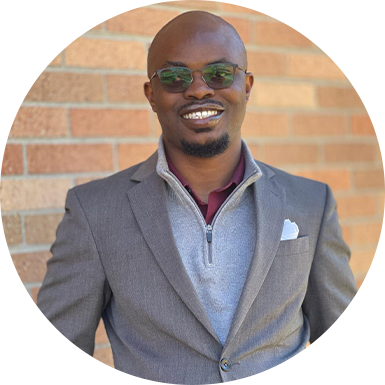

Tolulope Akinwole
Assistant Professor, Department of English Language and Literatures
What is your area of research or teaching?
My research and teaching coalesce around African literatures, global Black literatures, African screen media, cultural and critical theory, and infrastructure studies. My current research examines cultural expressions of spatial anxieties through literary and artistic representations of the public bus in African cities. I study the archives of literary, artistic, musical, and filmic texts that have formed around the public bus in order to offer the public bus as a key material through which to reorient current understandings of the global Black city.
Why are you excited about being at UBC?
I have long admired the UBC Department of English Language and Literatures, not just for the quality of research produced by its faculty but also because the Department is deeply aware of the epistemic violence that has long shaped linguistic and literary studies. I admire the Department’s substantive actions in addressing this violence and, in the process, pushing the disciplinary boundaries of English language and literary studies. I am looking forward to learning more about and taking part in that work.
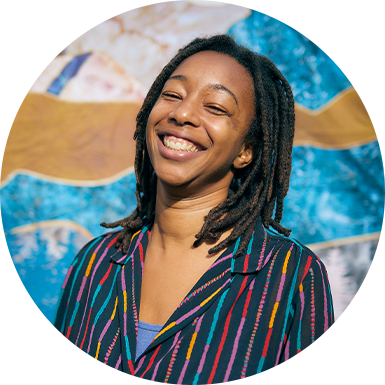

Whitney French
Assistant Professor, School of Creative Writing
What is your area of research or teaching?
I write, teach, and research in the fields of speculative fiction and speculative poetry with a special interest in speculative works exploring the histories, present-day, and futures of people of the African diaspora. My areas of interest or my “positive obsessions” are the topics of memory, loss, technology, and nature. That said, my research requires conventional and unconventional methods, including considered archival work, immersive land-based writing, and community engagement and documentation.
My teaching practice is deeply rooted in grassroots organizing and community arts-education methodologies. This active and growing practice requires me as an educator to generate space for students to be curious about the world around them and to take their craft seriously.
Why are you excited about being at UBC?
What’s not to be excited about? UBC is a fantastic institute that invests in creative writing—what a robust program! And the faculty are all rock stars. I am particularly interested in teaching speculative poetry, something I have only done in community spaces so to see it elevated to the academic classroom is very cool to me.
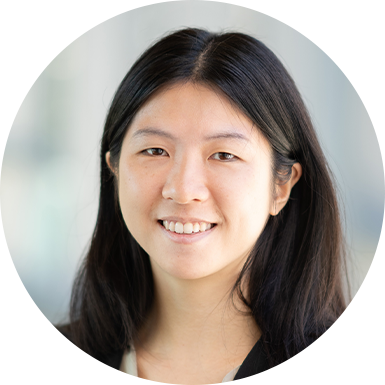

Ying Gao
Assistant Professor, Vancouver School of Economics
What is your area of research or teaching?
I study the economic theory of information. My research uses stylized models to look at how people can influence the choices of others by providing information, and, moreover, how incentives shape our choice of what types of information to share. Some of my recent work looks at how tailoring decisions to evidence changes what evidence is presented and how it should be interpreted. I am also interested in how people and algorithms learn from past track records, and whether making these records available affects how decisions are made.
Why are you excited about being at UBC?
It is wonderful to be part of the warm and welcoming community at the Vancouver School of Economics and to be close to exciting research in economics, computer science, and other fields that speak to shared topics. I look forward to collaborating with others working on information and incentive design and am really excited to get to see different approaches and perspectives on these questions.
